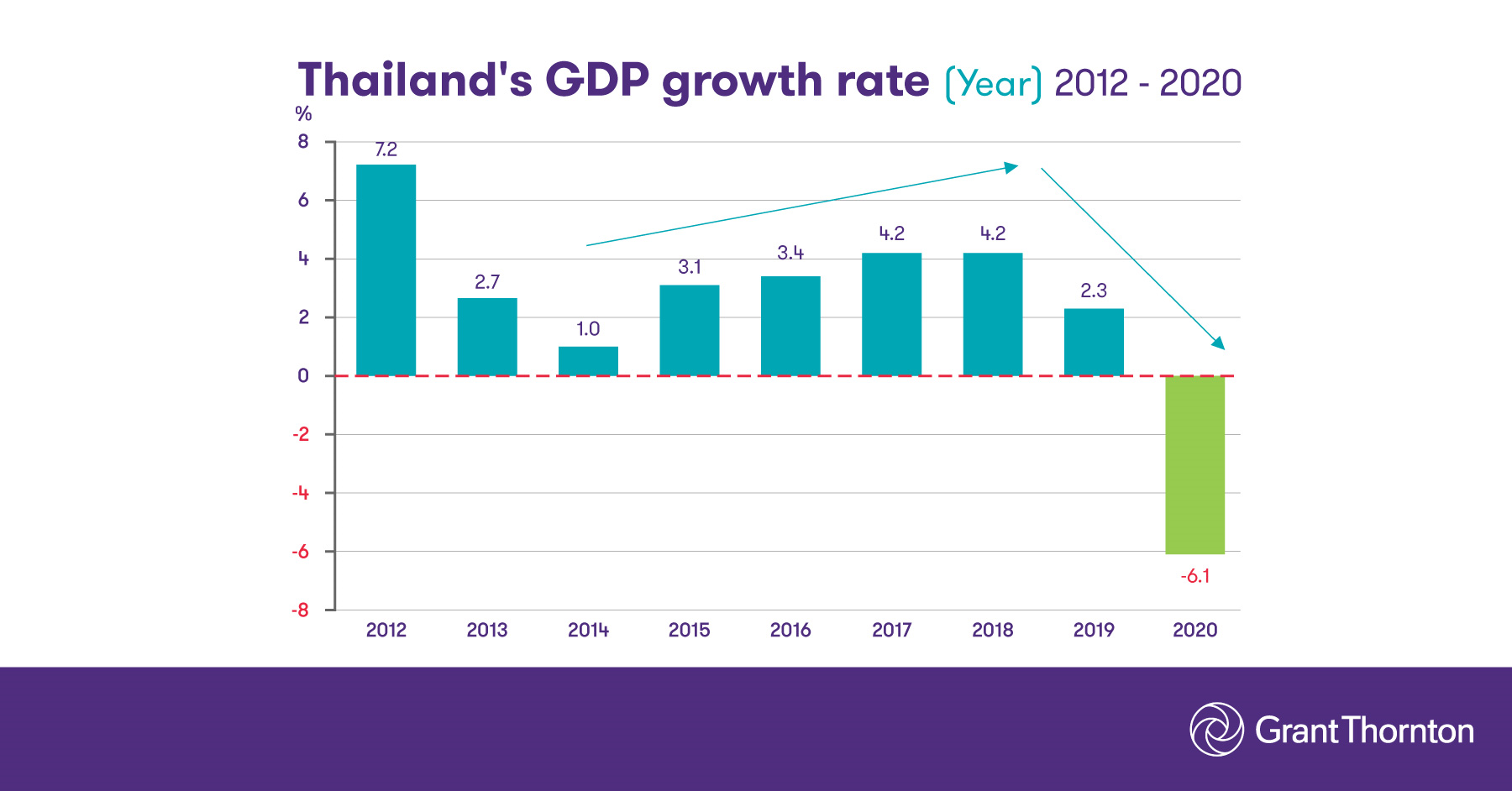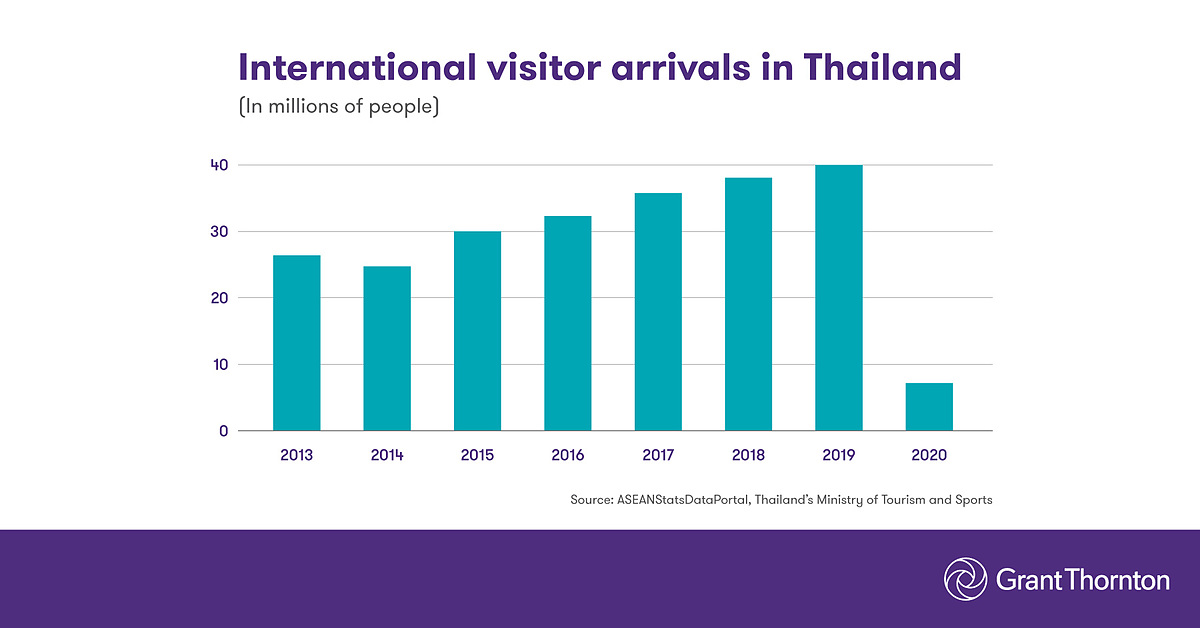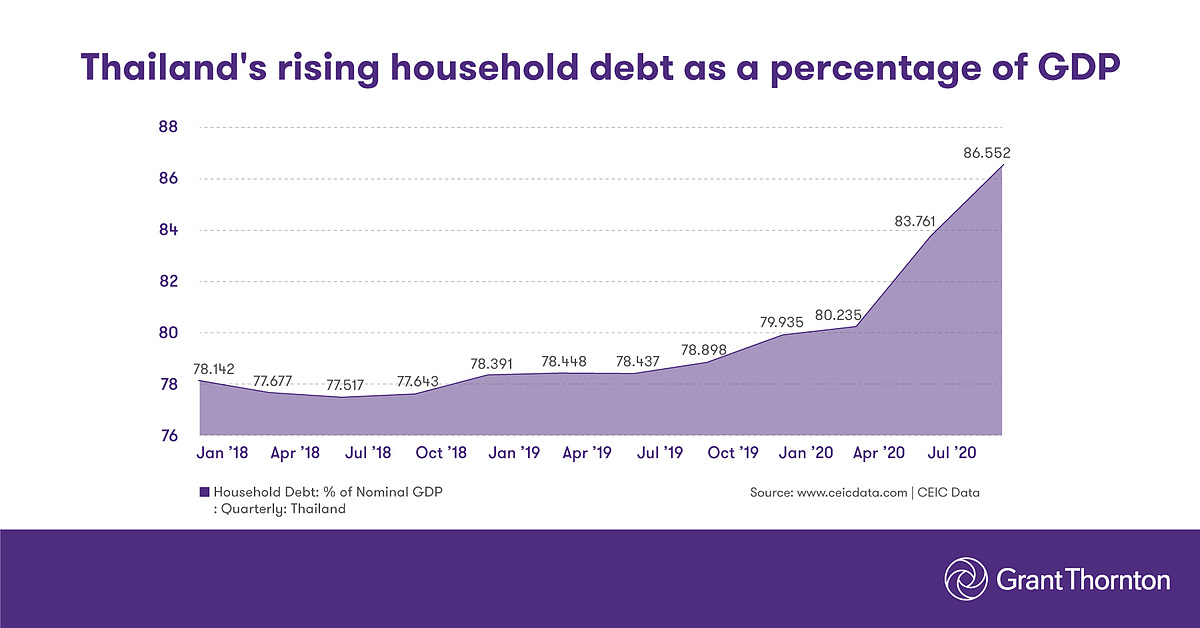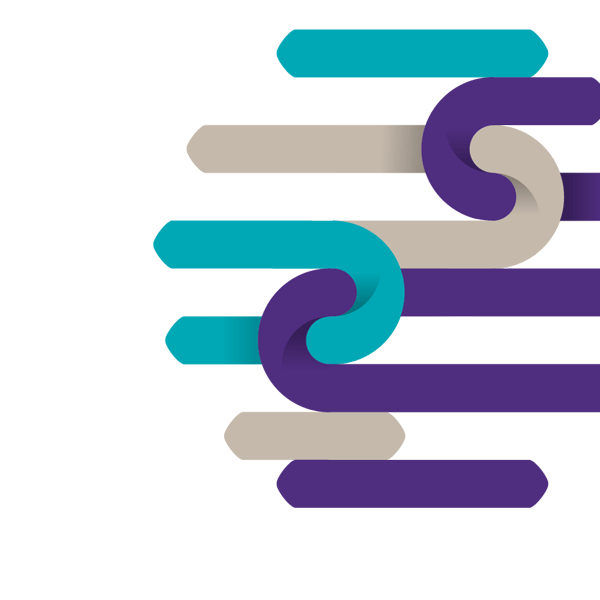-
Internal audit
In today's increasingly competitive and regulated market place, organisations - both public and private - must demonstrate that they have adequate controls and safeguards in place. The availability of qualified internal audit resources is a common challenge for many organisations.
-
IFRS
At Grant Thornton, our International Financial Reporting Standards (IFRS) advisers can help you navigate the complexity of financial reporting so you can focus your time and effort on running your business.
-
Audit quality monitoring
Having a robust process of quality control is one of the most effective ways to guarantee we deliver high-quality services to our clients.
-
Global audit technology
We apply our global audit methodology through an integrated set of software tools known as the Voyager suite.
-
Looking for permanent staff
Grant Thornton's executive recruitment is the real executive search and headhunting firms in Thailand.
-
Looking for interim executives
Interim executives are fixed-term-contract employees. Grant Thornton's specialist Executive Recruitment team can help you meet your interim executive needs
-
Looking for permanent or interim job
You may be in another job already but are willing to consider a career move should the right position at the right company become available. Or you may not be working at the moment and would like to hear from us when a relevant job comes up.
-
Practice areas
We provide retained recruitment services to multinational, Thai and Japanese organisations that are looking to fill management positions and senior level roles in Thailand.
-
Submit your resume
Executive recruitment portal
-
Update your resume
Executive recruitment portal
-
Available positions
Available positions for executive recruitment portal
-
General intelligence assessments
The Applied Reasoning Test (ART) is a general intelligence assessment that enables you to assess the level of verbal, numerical reasoning and problem solving capabilities of job candidates in a reliable and job-related manner.
-
Candidate background checks
We provide background checks and employee screening services to help our clients keep their organisation safe and profitable by protecting against the numerous pitfalls caused by unqualified, unethical, dangerous or criminal employees.

-
Capital markets
If you’re buying or selling financial securities, you want corporate finance specialists experienced in international capital markets on your side.
-
Corporate simplification
Corporate simplification
-
Expert witness
Expert witness
-
Family office services
Family office services
-
Financial models
Financial models
-
Forensic Advisory
Investigations
-
Independent business review
Does your company need a health check? Grant Thornton’s expert team can help you get to the heart of your issues to drive sustainable growth.
-
Mergers & acquisitions
Mergers & acquisitions
-
Operational advisory
Grant Thornton’s operational advisory specialists can help you realise your full potential for growth.
-
Raising finance
Raising finance
-
Restructuring & Reorganisation
Grant Thornton can help with financial restructuring and turnaround projects, including managing stakeholders and developing platforms for growth.
-
Risk management
Risk management
-
Technology & Digital Services
Technology Services
-
Transaction advisory
Transaction advisory
-
Valuations
Valuations
-
Human Capital Consulting
From time to time, companies find themselves looking for temporary accounting resources. Often this is because of staff leaving, pressures at month-end and quarter-end, or specific short-term projects the company is undertaking.
-
Strategy & Business Model
Strategy & Business Model
-
Process Optimisation & Finance Transformation
Process Optimisation & Finance Transformation
-
System & Technology
System & Technology
-
Digital Transformation
Digital Transformation
-
International tax
With experts working in more than 130 countries, Grant Thornton can help you navigate complex tax laws across multiple jurisdictions.
-
Licensing and incentives application services
Licensing and incentives application services
-
Transfer pricing
If your company operates in more than one country, transfer pricing affects you. Grant Thornton’s experts can help you manage this complex and critical area.
-
Global mobility services
Employing foreign people in Australia, or sending Australian people offshore, both add complexity to your tax obligations and benefits – and we can guide you through them.
-
Tax compliance and tax due diligence review services
Tax compliance
-
Value-Added Tax
Value-Added Tax
-
Customs and Trade
Customs and Trade
-
Service Line
グラントソントン・タイランド サービスライン
-
Business Process Outsourcing
Companies, large and small, need to focus on core activities. Still, non-core activities are important, and they need to be leaner and more efficient than most companies can make them sustainably. For Grant Thornton, your non-core activities are our core business. Grant Thornton’s experienced outsourcing team helps companies ensure resilience, improve performance, manage costs, and enhance agility in resourcing and skills. Who better to do this than an organisation with 73,000 accountants? At Grant Thornton we recognise that that outsourcing your F&A functions is a strategic decision and an extension of your brand. This means we take your business as seriously as we take our own.
-
Technology and Robotics
We provide practical digital transformation solutions anchored in business issues and opportunities. Our approach is not from technology but from business. We are particularly adept at assessing and implementing fast and iterative digital interventions which can drive high value in low complex environments. Using digital solutions, we help clients create new business value, drive efficiencies in existing processes and prepare for strategic events like mergers. We implement solutions to refresh value and create sustainable change. Our solutions help clients drive better and more insightful decisions through analytics, automate processes and make the most of artificial intelligence and machine learning. Wherever possible we will leverage your existing technologies as our interest is in solving your business problems – not in selling you more software and hardware.
-
Technical Accounting Solutions
The finance function is an essential part of the organisation and chief financial officer (CFO) being the leader has the responsibility to ensure financial discipline, compliance, and internal controls. As the finance function is critical in every phase of a company’s growth, the CFO role also demands attention in defining business strategy, mitigating risks, and mentoring the leadership. We offer technical accounting services to finance leaders to help them navigate complex financial and regulatory environments, such as financial reporting and accounting standards, managing compliance requirements, and event-based accounting such as dissolutions, mergers and acquisitions.
-
Accounting Services
Whether you are a local Thai company or a multinational company with a branch or head office in Thailand you are obliged to keep accounts and arrange for a qualified bookkeeper to keep and prepare accounts in accordance with accounting standards. This can be time consuming and even a little dauting making sure you conform with all the regulatory requirements in Thailand and using Thai language. We offer you complete peace of mind by looking after all your statutory accounting requirements. You will have a single point of contact to work with in our team who will be responsible for your accounts – no matter small or large. We also have one of the largest teams of Xero Certified Advisors in Thailand ensuring your accounts are maintained in a cloud-based system that you have access to too.
-
Staff Augmentation
We offer Staff Augmentation services where our staff, under the direction and supervision of the company’s officers, perform accounting and accounting-related work.
-
Payroll Services
More and more companies are beginning to realize the benefits of outsourcing their noncore activities, and the first to be outsourced is usually the payroll function. Payroll is easy to carve out from the rest of the business since it is usually independent of the other activities or functions within the Accounting Department. At Grant Thornton employees can gain access to their salary information and statutory filings through a specialised App on their phone. This cuts down dramatically on requests to HR for information by the employees and increases employee satisfaction. We also have an optional leave approval app too if required.
-
 IBR Optimism of Thailand Mid-Market Leaders Suggests Potential Underestimation of Challenges Ahead: International Business Report, Q1 2024Bangkok, Thailand, April 2024 — The Grant Thornton International Business Report (IBR) for Q1 2024 unveils a strikingly optimistic outlook among Thailand's mid-market business leaders, juxtaposed with the looming challenges that will shape the nation's economic future. With a Business Health Index score of 13.5, Thailand outperforms its ASEAN, Asia-Pacific, and global counterparts, signaling a robust confidence that may overshadow critical issues such as demographic changes, skills shortages, and the necessity for digital advancement.
IBR Optimism of Thailand Mid-Market Leaders Suggests Potential Underestimation of Challenges Ahead: International Business Report, Q1 2024Bangkok, Thailand, April 2024 — The Grant Thornton International Business Report (IBR) for Q1 2024 unveils a strikingly optimistic outlook among Thailand's mid-market business leaders, juxtaposed with the looming challenges that will shape the nation's economic future. With a Business Health Index score of 13.5, Thailand outperforms its ASEAN, Asia-Pacific, and global counterparts, signaling a robust confidence that may overshadow critical issues such as demographic changes, skills shortages, and the necessity for digital advancement. -
 Workshop Corporate Strategy and Company Health Check WorkshopThroughout this workshop, we will delve into the life cycle of companies, examining the stages of growth, maturity, and adaptation. Our focus will extend to the current business environment, where your Company stands today, and how our evolving strategy aligns with the ever-changing market dynamics.
Workshop Corporate Strategy and Company Health Check WorkshopThroughout this workshop, we will delve into the life cycle of companies, examining the stages of growth, maturity, and adaptation. Our focus will extend to the current business environment, where your Company stands today, and how our evolving strategy aligns with the ever-changing market dynamics. -
 Tax and Legal update 1/2024 Introducing the New “Easy E-Receipt” Tax scheme with up to THB 50,000 in Tax DeductionsThe Revenue Department has introduced the latest tax scheme, the “Easy E-Receipt”, formerly known as “Shop Dee Mee Kuen”. This scheme is designed to offer individuals tax deductions in 2024.
Tax and Legal update 1/2024 Introducing the New “Easy E-Receipt” Tax scheme with up to THB 50,000 in Tax DeductionsThe Revenue Department has introduced the latest tax scheme, the “Easy E-Receipt”, formerly known as “Shop Dee Mee Kuen”. This scheme is designed to offer individuals tax deductions in 2024. -
 TAX AND LEGAL Complying with the PDPA – A Balancing ActOrganisations must be aware of the circumstances in which they are allowed to collect data to comply with Thailand’s Personal Data Protection Act.
TAX AND LEGAL Complying with the PDPA – A Balancing ActOrganisations must be aware of the circumstances in which they are allowed to collect data to comply with Thailand’s Personal Data Protection Act.
The global economy cratered in 2020 – and despite seeing a far lower rate of COVID-19 infections than most other countries, Thailand suffered major economic losses just the same. As markets dried up, secondary and tertiary effects from the pandemic period began to make themselves felt: Widening wealth gaps, social unrest, increases in certain types of crime, neglect of non-COVID-related health issues, and more.

Even if the virus were to disappear tomorrow, the negative consequences of these developments would stay with us for years. Yet the country’s slow vaccine rollout, combined with new outbreaks traced to Bangkok bars and clubs, have led many to conclude that, despite our hopes for a fresh start in 2021, the reality as we enter Songkran seems to resemble little more than a continuation of 2020.
These types of setbacks (which may even increase in severity as people gather together over Songkran) have already begun to deflate prior hopes of an accelerating economic recovery. Instead of opening up further, Thailand has introduced new restrictions on certain venues, while beginning to regulate travel from Bangkok to dozens of provinces around the country.
Moreover, as Thailand’s economic fortunes are closely tied to the fate of the global economy – through exports, tourism, foreign investment, and other factors – no domestic recovery is likely to outpace the recovery of the world as a whole. Presently, the logistical difficulties of vaccinating entire populations, compounded by simmering political tensions within and between a number of countries, is slowing down this worldwide effort.
“When America sneezes,” people used to say, “the world catches a cold.” These days, our multi-polar, globalised economy leaves nations like Thailand more vulnerable to disturbances affecting any major economic region. When the world catches COVID, perhaps businesses everywhere must go on life support.
So where does this leave Thailand?
In 2020, the Thai economy contracted by an estimated 6.5% overall, with private consumption declining 1.3% and private investment down 4.4%. When we include both the formal and informal economies, estimates suggest that between 8 and 10 million people are presently unemployed.
Thailand’s ability to dig itself out of this hole will depend on vaccinations as well as the prevention of a COVID-19 resurgence within its borders. Weighing these and other factors, the Bank of Thailand forecasts a positive GDP growth of around 3.0% for the country in 2021, with most of the increase coming during the latter half of the year.
As we often point out, however, this growth will not be experienced evenly across all sectors – or even all companies within each sector. Likewise, citizens will experience ‘K’-shaped recovery trends, as those who already have financial reserves will be able to invest profitably, while those with fewer means will struggle to make ends meet.
The worst-hit sectors are and will remain travel & tourism, automotive, and real estate – at least for the time being. Tourism’s woes are widely understood, but fewer are aware that vehicle production in Thailand fell by 40% over the first half of 2020, with a steep drop in vehicle exports over the same period. In real estate, the supply of new condo units in Q4 2020 dropped by nearly 78% from a year earlier.
Until a rising economy helps customers regain confidence and earn enough disposable income, these industries will have to endure additional slow sales periods. Markets will return eventually, however, so companies in these areas should be using this downturn to innovate as much as possible and focus on making their internal processes as efficient as possible.

How to hit a moving target
Elsewhere in the private sector, companies that have embraced technology to support the customer experience and lower the cost of production appear to be doing well.
Examples include leading e-commerce retailer Shopee Thailand, whose advanced digital interface offers the type of customer convenience that will likely result in increased sales activity even after the COVID crisis is behind us.
Food delivery service businesses such as Grab, LINE MAN, and Foodpanda have all invested in cloud kitchens to accelerate food preparation and better accommodate their customers. These and other businesses have learned that success is not about recreating 2019 – it is about ensuring relevance in 2021.
Even businesses in hard-hit industries can benefit from this forward-thinking mindset, whether or not a given initiative is powered by digital technology. From the newfound popularity of hotel “staycations”, to resorts that invite guests to recreate the five-star experience in the comfort of their own home, to airlines that (literally) cater to those who are nostalgic for flying, brands that have earned consumer loyalty are finding that they can translate that support into real sales by applying just a bit of extra creativity to their business models.
No time to waste
Even as we wait for better market conditions to present themselves, every company can improve its own prospects by streamlining its internal processes while actively innovating for success in the economy of tomorrow.
The road will be tough, with little help from outside – especially as government stimulus measures begin to taper off. A weakened Baht may help to bring in more tourists, but only if an effective system of vaccine passports can be introduced quickly.
Moreover, inflation may also be a risk. Any decision to keep the rate low through increased interest rates could have the effect of removing liquidity from the market and stifling economic recovery. Another problem results from the rise in household debt, which now represents 89.3% of Thailand’s entire GDP.

These and other indicators, particularly the high unemployment numbers, suggest a continuation of social unrest – at least if the experience of other countries is any guide. Thailand’s government will likely do everything in its power to keep inflation and interest rates under control for as long as possible. But in terms of positive relief, very few public sector initiatives seem to be forthcoming.
Overall, then, the outlook for Q2 is more of the same, with limited recovery evident until H2 2021. Thailand simply must find a way to roll out an effective national vaccine programme right away, rather than remaining content with the sluggish late-2021 distribution schedule that is currently in play. A weaker but stable Thai currency would also increase consumer confidence, as the rest of the world works to complete its vaccination project and get back to some semblance of normal.
Yet whether or not these developments turn out as well as we might hope, it is well within the power of businesses to leverage the resources at their disposal to gain an advantage over their competitors.
Despite the recent upsurge of COVID-19 cases in Thailand, progress at the level of individual organisations remains squarely within reach. From inventive new business models, to digitally enhanced services, to more efficient methods of operation, companies that embrace well-adapted solutions will have the best chance to flourish in 2021 and beyond.



